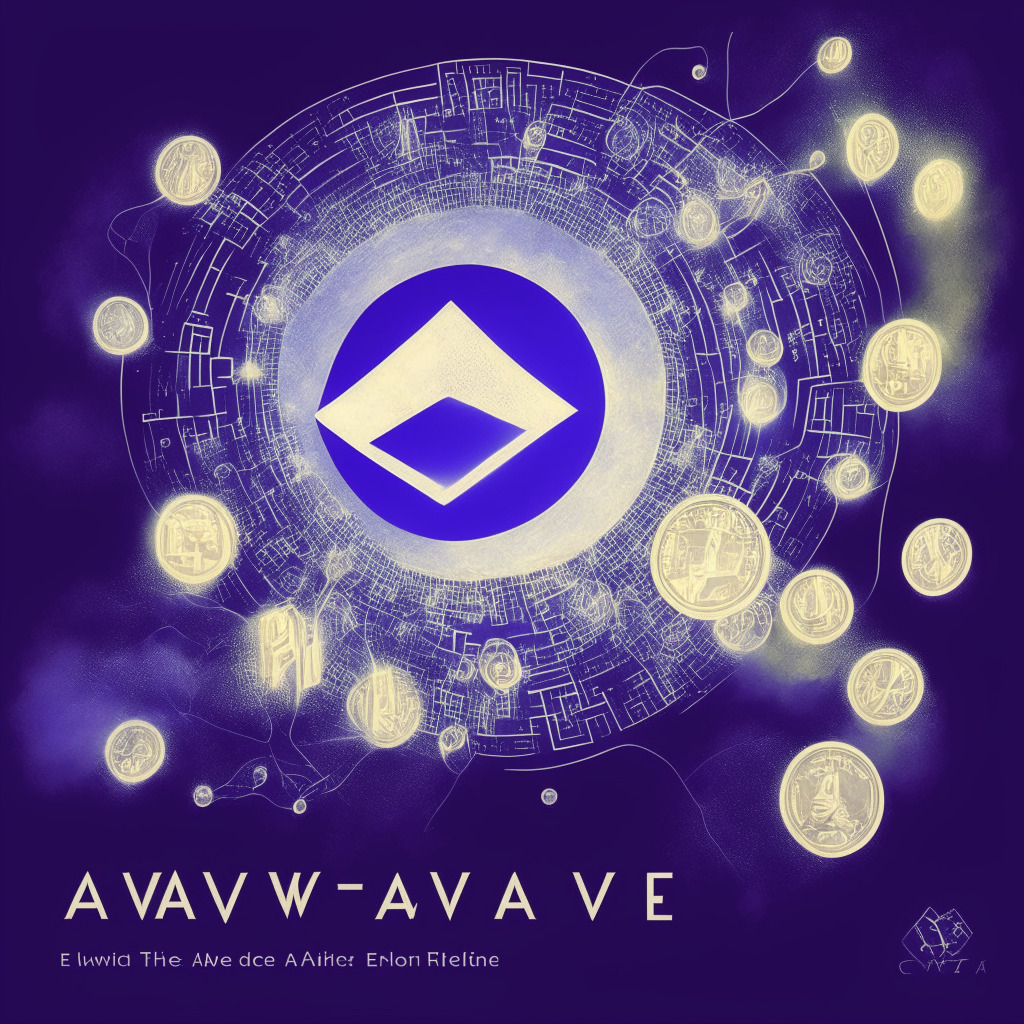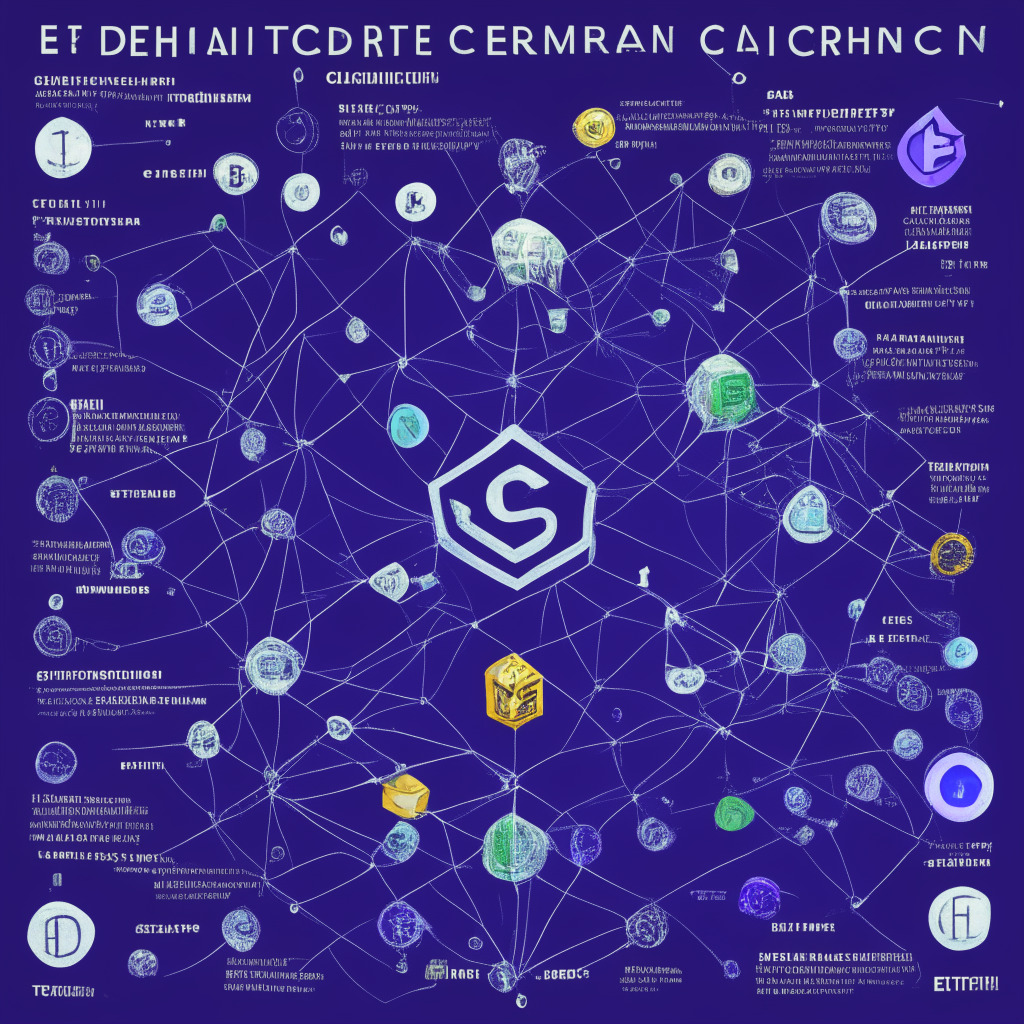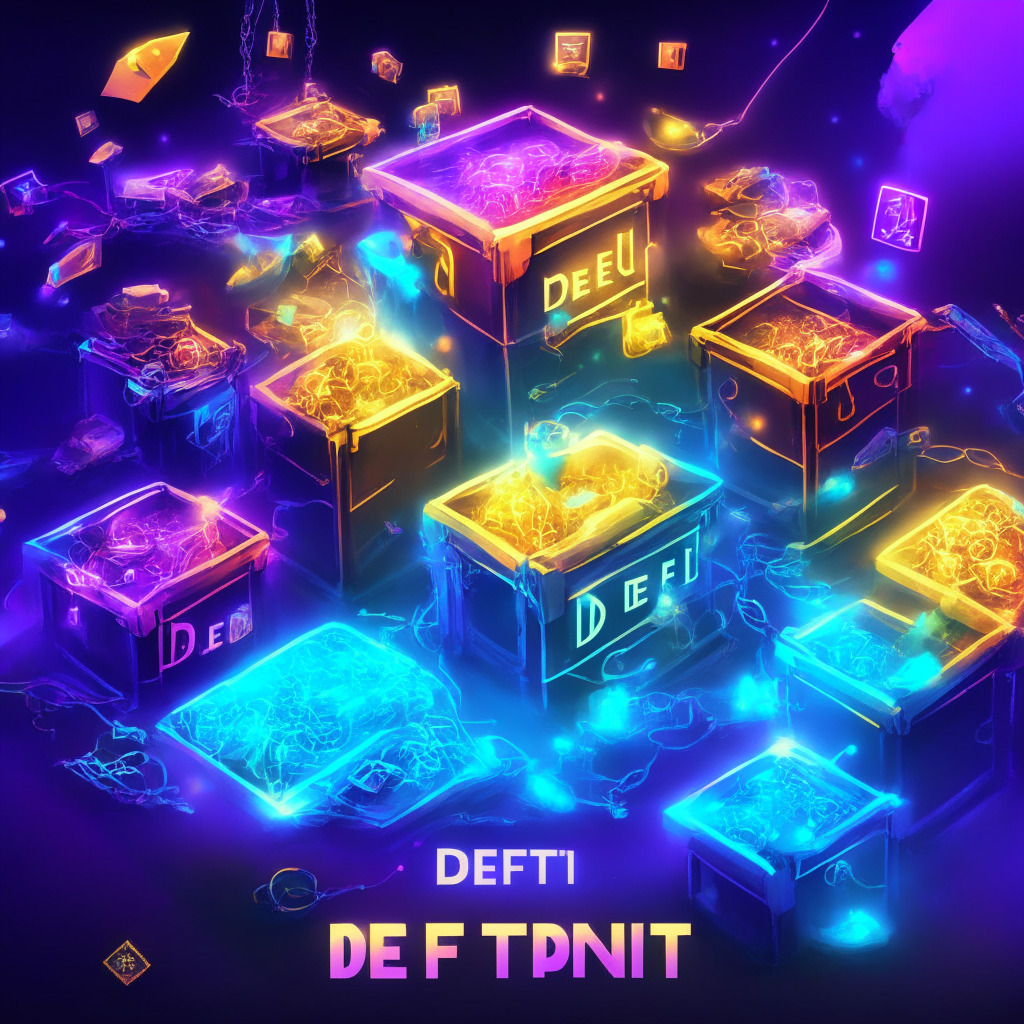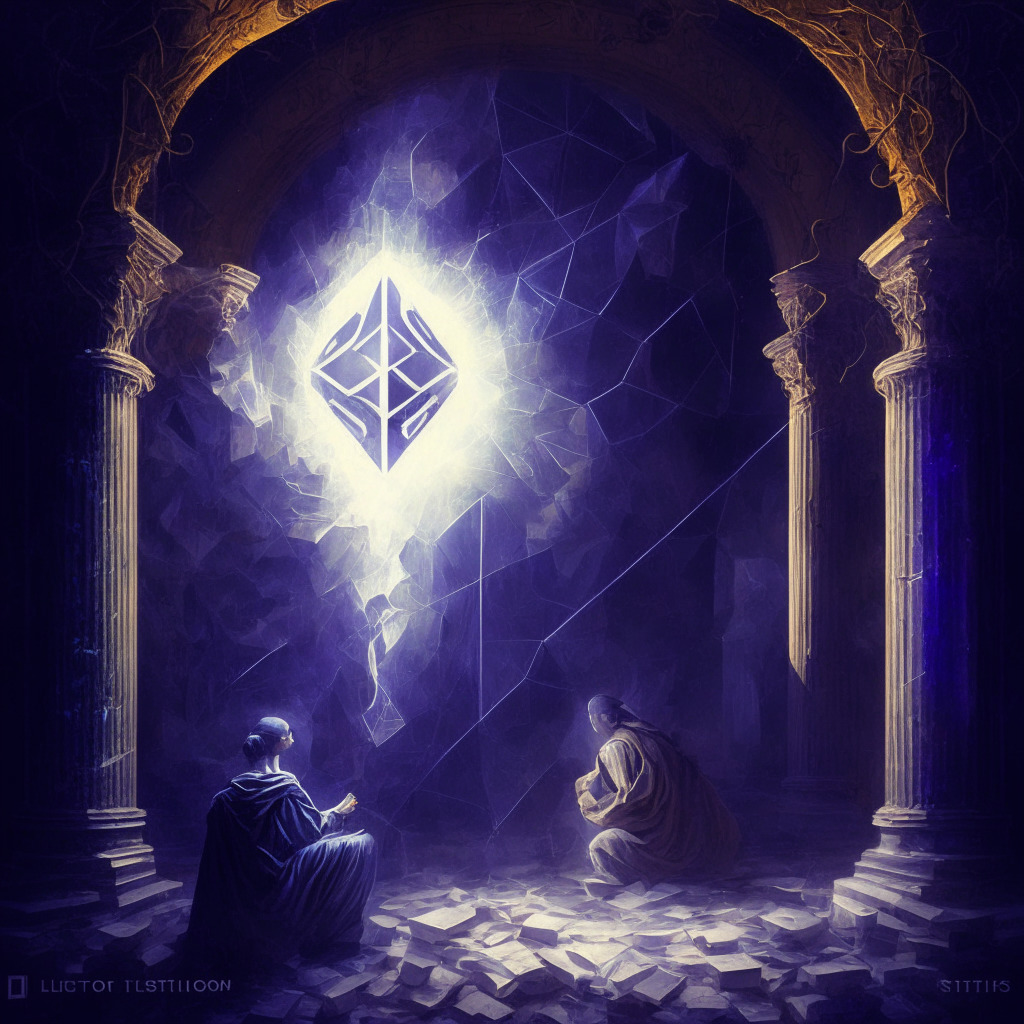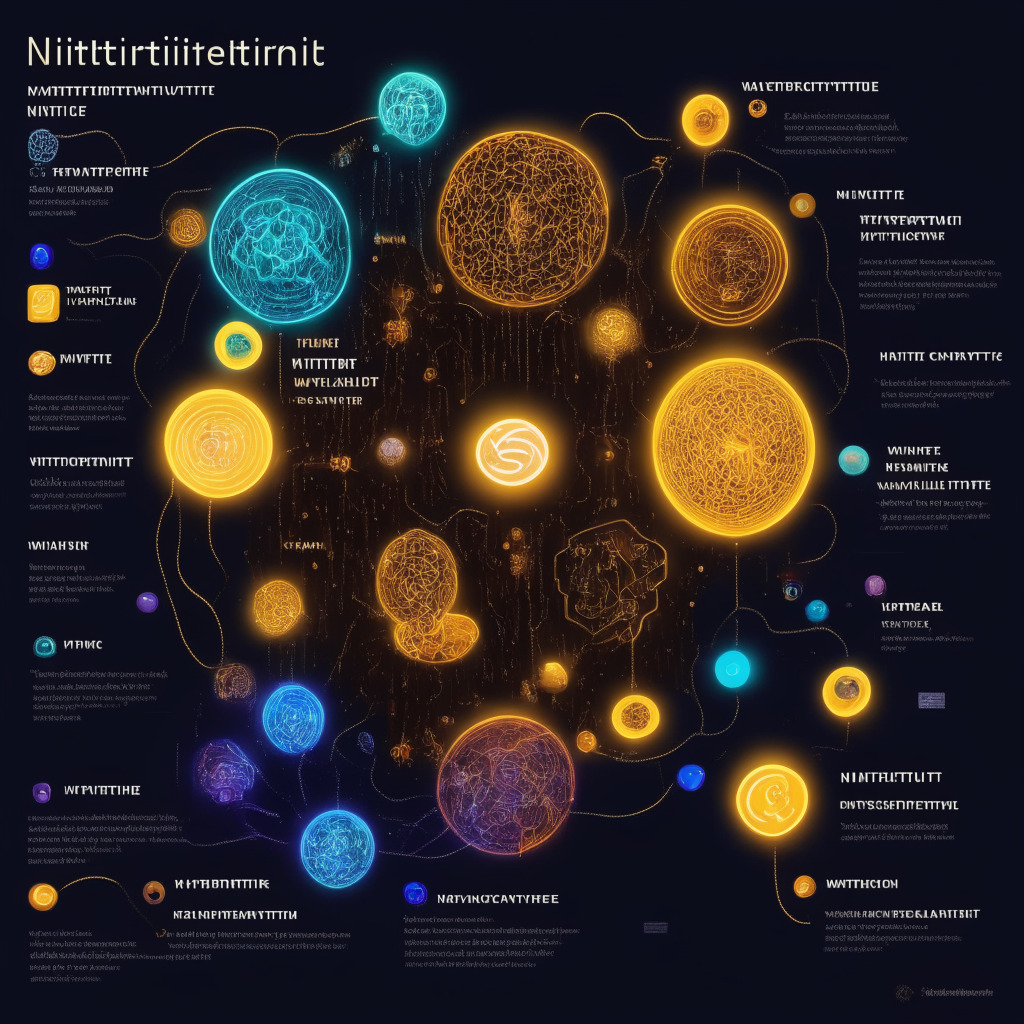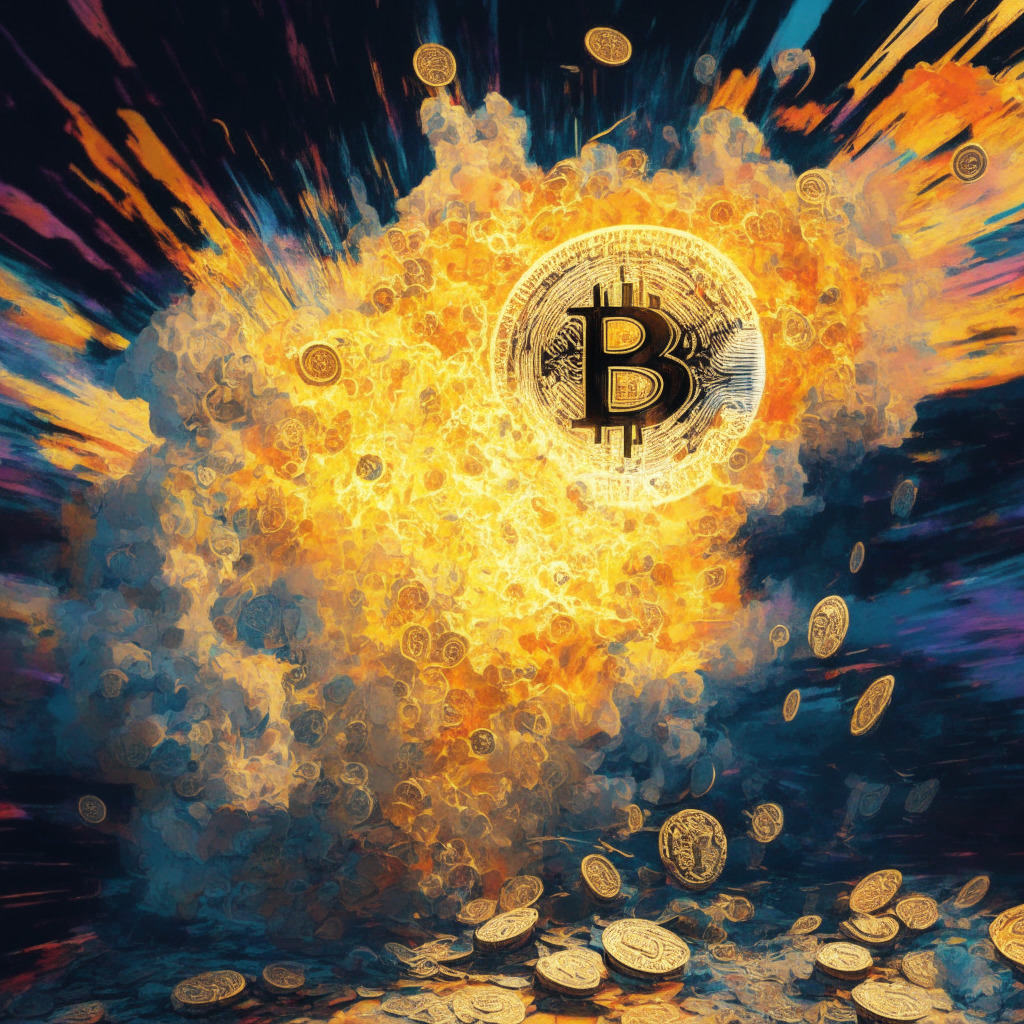The SEC extended the comments period for amending Rule 3b-16, facing criticism from the Blockchain Association and Republican committee members for its potential negative impact on the crypto industry. Opponents argue that the proposal’s broad language could capture a wide range of individuals, exceeding the agency’s authority and raising constitutional concerns.
Search Results for: Origin Protocol
BOCI Issues Tokenized Security in Hong Kong: Excitement, Concerns, and Blockchain’s Future
BOCI, the Bank of China’s investment bank subsidiary, has issued 200 million Chinese Yuan ($28 million) worth of digital structured notes on the Ethereum blockchain. This marks BOCI as the first Chinese financial institution to issue a tokenized security in Hong Kong, with UBS playing a crucial role in product origination. The development showcases growing interest in digital assets and blockchain technology among traditional financial institutions.
Decentralizing AI: Gensyn Secures $43M Funding for Machine Learning Frontier
Gensyn AI recently secured $43 million in Series A funding led by a16z crypto to harness the power of decentralized technology for AI applications. Their decentralized machine learning compute protocol connects global machine learning-capable hardware, enabling a scalable, blockchain-based solution with minimal verification overhead.
Terra Luna Classic Struggles: Analyzing LUNC’s Rocky Future and Exploring Alternatives
Terra Luna Classic (LUNC) experienced recent volatility and struggles to break resistance. LUNC’s long-term rebound potential is weak due to a massive exodus of capital, users, and developers. Investors may want to consider diversifying with better-performing projects like AI-powered platform yPredict.
Aave’s GHO Stablecoin: Innovative Benefits vs Decentralization Risks on Ethereum Mainnet Launch
Aave’s innovative stablecoin, gho (GHO), nears Ethereum mainnet launch with proposals for V3 Ethereum Facilitator and FlashMinter Facilitator. Backed by a basket of cryptocurrencies, gho aims for decentralization, passive income opportunities, and benefits for Aave’s decentralized autonomous organization (DAO) while confronting potential risks.
Atomic Wallet Hack & Sinbad Coin Mixer: Anonymity Asset or Threat?
The $35 million Atomic Wallet hack involved stolen funds traced to Sinbad, a coin mixing service popular among North Korean hacker cell Lazarus. Coin mixers provide anonymity in crypto transactions, but their use for illicit activities poses challenges for law enforcement and regulatory measures.
FedNow vs Stablecoins: 5 Key Advantages Keeping Decentralized Assets Relevant
Stablecoins maintain relevance despite the launch of FedNow, offering advantages like global accessibility, financial inclusivity, on-chain transactions, affordable cross-border payments, and handling unrestricted transaction sizes, making them essential in the crypto ecosystem.
DOJ May Drop Charges Against Ex-FTX CEO: A Win for Crypto or Loophole for Criminals?
The U.S. DOJ might drop charges against former FTX CEO Sam Bankman-Fried due to potential violations of the extradition agreement with the Bahamas. This highlights complexities and challenges in balancing crypto innovation with safety and regulations across global jurisdictions.
BRC-721E: Bridging Ethereum NFTs to Bitcoin’s Ordinals – Future Potential and Challenges
The new BRC-721E token standard facilitates the migration of Ethereum-based NFTs onto Bitcoin, transforming ERC-721 NFTs into Ordinals. This allows users to transfer digital collectibles from Ethereum to Bitcoin using a bridging contract while preserving essential metadata and provenance.
Ethereum’s Shanghai Upgrade: Boon for Crypto Forensics or Hindrance in Detecting Illicit Activities?
Ethereum’s Shanghai upgrade transition to proof-of-stake blockchain has opened new investment themes like DeFi, stablecoins, and NFTs. Ethereum’s staking yields now represent the “risk-free rate” of crypto, enabling easier detection of suspicious activities like money laundering and wash trading. However, price volatility may hinder effectiveness in identifying illicit activities.
Tornado Cash Regains Control: Attack, Recovery, and Future of DeFi Security
Tornado Cash’s governance token holders regain control over the protocol after an unexpected proposal by the individual responsible for a recent attack. This highlights continuous challenges faced by decentralized finance (DeFi) protocols in maintaining security and safeguarding against potential vulnerabilities.
Dogecoin Surpasses Ethereum and Bitcoin in Transaction Volume: A Joke Turned Competitor?
Dogecoin, once a joke, now surpasses Ethereum and Bitcoin in transaction volume, handling over 7.9 million transactions due to Bitcoin Ordinals, a layer-2 solution similar to NFTs. With competitive fees and rapid adoption of NFT-like features, Dogecoin demonstrates the potential as a serious blockchain competitor.
Bitcoin Core 25.0: Expanding Use Cases and Boosting Network Efficiency
The latest Bitcoin Core version introduces changes to transaction policies, enabling smaller transaction sizes and more efficient use of the network. Developments in the ordinals protocol support diverse token creation, bringing additional utility to Bitcoin ecosystem and optimism for the cryptocurrency’s future.
Bitcoin NFTs and Meme Tokens: Boon for Adoption or Network Congestion Nightmare?
Bitcoin-based NFTs and meme tokens experience soaring popularity as Ordinals inscriptions reach 9 million. The Bitcoin Ordinals protocol enables inscribing digital artifacts, drawing criticism for misuse and increasing network congestion. Despite concerns, it serves as a catalyst for Bitcoin adoption and expansion into other cryptocurrencies.
Namada and Osmosis Partnership: Exploring Privacy Advancements and Community Reactions
Namada, a privacy-focused blockchain firm, is considering partnering with Cosmos-based Osmosis protocol to implement shielded actions for enhanced privacy and security in cross-ecosystem asset management. However, reservations exist, with the collaboration’s future hinging on the Osmosis community’s response, and concerns about compatibility between the two systems.
FastLane Labs’ MEV Solution on Polygon: Catalyst or Controversy?
Multicoin Capital leads a $2.3 million seed funding round for FastLane Labs, a maximal extractable value (MEV) protocol designed for the Polygon network. FastLane Labs offers an innovative auction system that rewards validators without spamming the blockchain, using off-chain and external auctions to minimize redundant transactions.
TON Foundation’s $25M Accelerator Program: Boosting DeFi and Attracting Global Talent
The TON Foundation recently introduced a $25 million accelerator program dedicated to supporting emerging projects on the TON blockchain, with a focus on decentralized finance (DeFi). Financial backing from the Toncoin Fund will be offered in addition to partnership support and mentorship from accelerator partners.
zkSync vs. Arbitrum: Layer 2 Battle Heats Up as Transaction Records Shatter
zkSync achieves one million transactions in 24 hours, ranking as the second top L2 network behind Ethereum. Increasing transaction speed and reducing fees, zkSync attracts interest from projects like 1inch, Chainlink, and Uniswap. Despite impressive milestones, users should consider the risks, including past mainnet malfunctions.
Aave’s Polygon Issue: Funds Stuck, Solution Hinges on Crucial Governance Vote
Aave recently faced an issue with its V2 Polygon platform, preventing users from interacting with Wrapped Ether, Tether, Wrapped Bitcoin, and Wrapped Matic pools, and withdrawing assets. Aave V2’s ReserveInterestRateStrategy upgrade is incompatible with Polygon, impacting assets worth $110 million. Aave assures funds are safe, pending a governance vote to resolve the issue.
Bitcoin’s Lunar Leap: Symbolic Milestone or Wasteful Endeavor?
In the historic summer of 2023, Astrobotic Technology, BitMEX, and Bitcoin Magazine will partner to send the first physical Bitcoin to the Moon, marking the first Western soft lunar landing since NASA’s Apollo 17 mission in 1972 and symbolizing a world without borders.
Cross-Chain Innovations: Boosting Collaboration vs. Threatening Decentralization
Miami-based Borderless Capital leads a $50 million fund for fostering cross-chain innovations, addressing challenges in the Web3 landscape. Powered by Wormhole, a decentralized message-passing protocol, the fund aims to ease constraints for developers and promote inter-blockchain communication.
Bancor DeFi Lawsuit: Impermanent Loss Claims, Unregistered Security, and Violations
Bancor faces a class-action lawsuit alleging deception about its impermanent loss protection mechanism and operation as an unregistered security. The suit questions the defendants’ control over Bancor DAO operations and contends that the LP Program should be classified as a security under U.S. law.
Japan’s $721M Crypto Hacks: North Korea’s Theft Strategy & Global Security Lessons
Japan has suffered $721 million in cryptocurrency theft by North Korean hackers, accounting for 30% of the global total, according to a study by Elliptic. Lax security systems in Japan and Vietnam are said to be the primary reasons for their vulnerability. The findings emphasize the importance of implementing robust security measures and increasing international cooperation against such threats.
Unlocking DeFi Liquidity: Time-Bound Tokens Revolutionize Locked Assets Trading
Crypto startup Hourglass launches the first-ever marketplace for trading Time-Bound Tokens (TBTs), allowing users to gain liquidity from locked-up assets in DeFi protocols. By selling the rights to the time duration in a secondary market, Hourglass aims to address liquidity challenges faced by users with lengthy withdrawal wait times.
Ethereum Finality Hiccups: Analyzing Reactions, Implications, and Future Impacts
The Ethereum network recently faced two instances of technical issues causing confusion and debate among users and developers. These finality issues have raised concerns within the Ethereum community, emphasizing the importance of understanding blockchain technology and safety measures in the cryptocurrency world.
Tessera Shutdown: What It Means for NFT Fractionalization and Market Evolution
Tessera, a prominent NFT protocol, announced its shutdown and closure of Escher digital fine art marketplace. This decision comes after examining market scenarios, company structure, and financial status. The closures may signify growing pains as the NFT market matures and consolidates.
Bitcoin Network Clogged by BRC-20 Tokens: Debating Solutions and Market Impact
The Ordinals protocol has caused an explosion of BRC-20 tokens, clogging the Bitcoin network and leading to high transaction fees. Developers are debating whether to take drastic steps to address the issue or maintain the status quo. Meanwhile, some Bitcoin users in Africa are seeking alternative payment options, and Binance plans to integrate the Lightning Network to scale.
Frog-Themed Memecoin PEPE: Massive Influx Impacting Market Dynamics and Future Prospects
A wave of 33 trillion PEPE tokens, valued at approximately $46.37 million, has hit various crypto exchanges, potentially signaling an imminent large-scale sell-off and a dramatic drop in the token’s value. Amid the uncertainty surrounding the popular memecoin, both bullish and bearish outcomes seem feasible; thorough market research is essential before investing.
How the IRS Seized $10 Billion in Crypto: Blockchain Analysis Tools & Future Challenges
The IRS seized approximately $10 billion worth of cryptocurrency in relation to digital asset crimes, aided by blockchain analysis tools like Chainalysis. Enhanced interaction between the IRS and the crypto space, investments in people, data, and technology, and training of international law enforcement agencies contribute to combating financial crimes.
Binance NFT Marketplace Expands: Supporting Bitcoin Ordinals and Its Impact on the Ecosystem
Binance NFT marketplace’s upcoming support for Bitcoin Ordinals aims to excite collectors, traders, and creators by simplifying purchases, providing royalty income, and fostering collaboration. Streamlining processes and offering more NFT options, Binance sets the stage for ecosystem growth, while addressing concerns about platform dependence and centralization.
Exploring the BRC-20 Token Boom: Implications for Bitcoin’s Network and Crypto Ecosystem
The BRC-20 token standard, an experimental Bitcoin blockchain token modelled after Ethereum’s ERC-20, has gained attention with a 600% market cap explosion and $120 million total value. Despite popularity among crypto enthusiasts, skepticism is warranted regarding its long-term sustainability and impact on the Bitcoin network.
BRC-20 Tokens: Exploring the Surge, Differences from ERC-20, and Impact on Crypto Exchanges
The BRC-20 token standard, built with Ordinals and stored on the Bitcoin base chain, has seen a massive 682% rise in combined market value, reaching $137 million. This experimental token standard allows users to issue and transfer fungible tokens on the Bitcoin blockchain, offering a new way to utilize Bitcoin without relying on smart contracts like Ethereum’s ERC-20 tokens.




